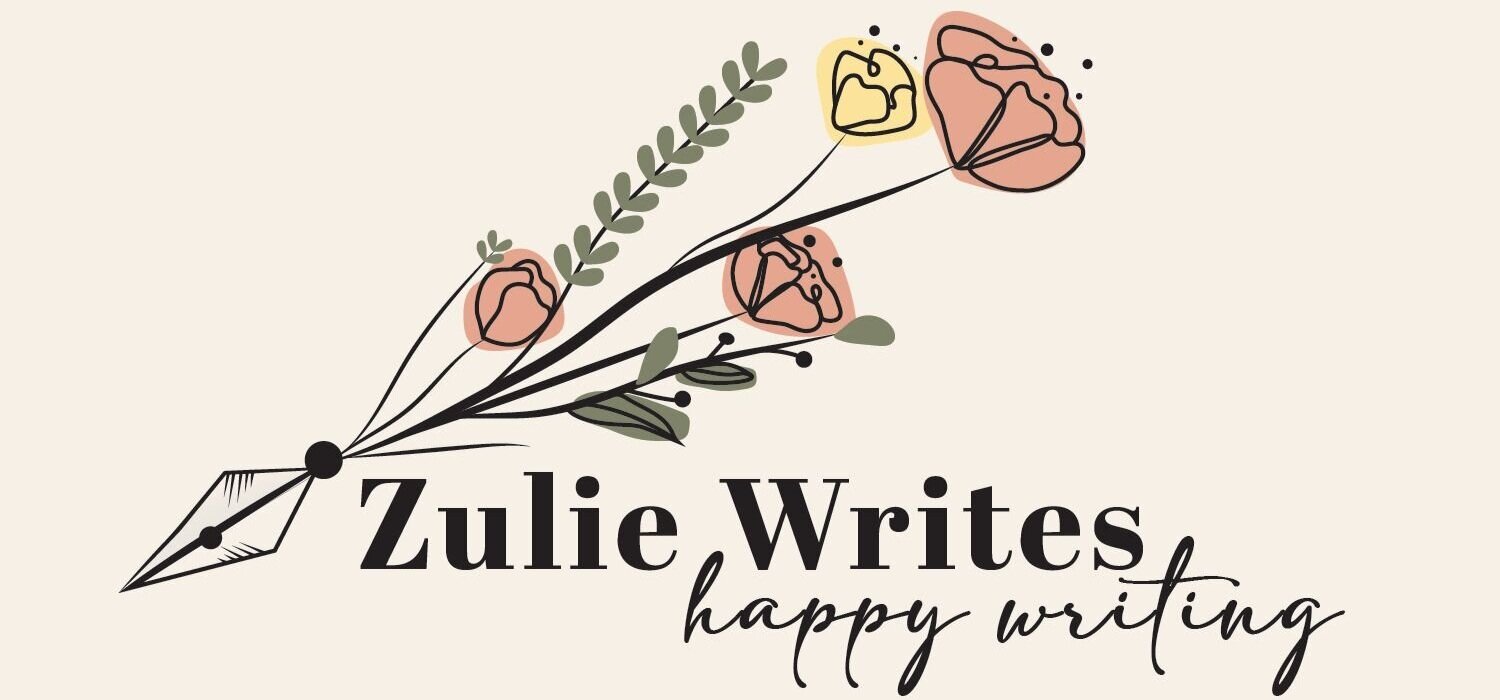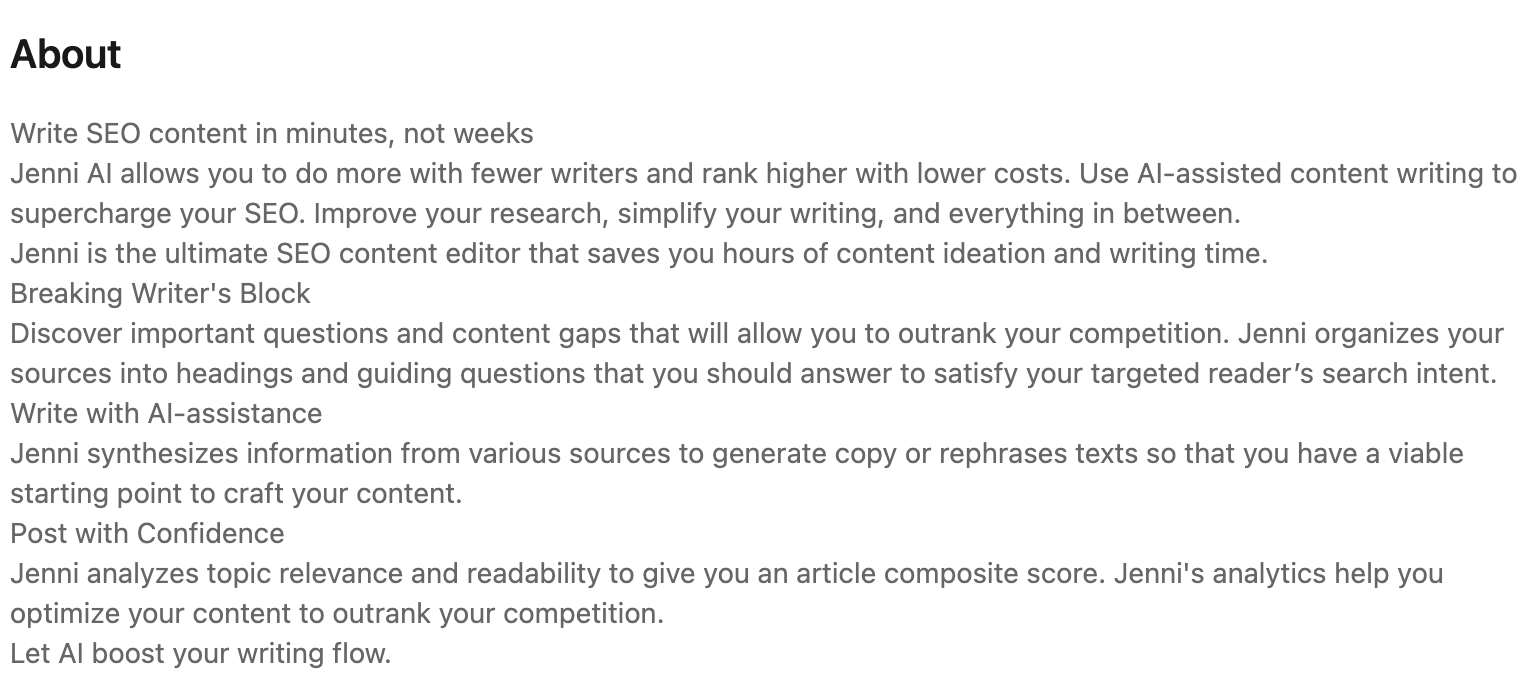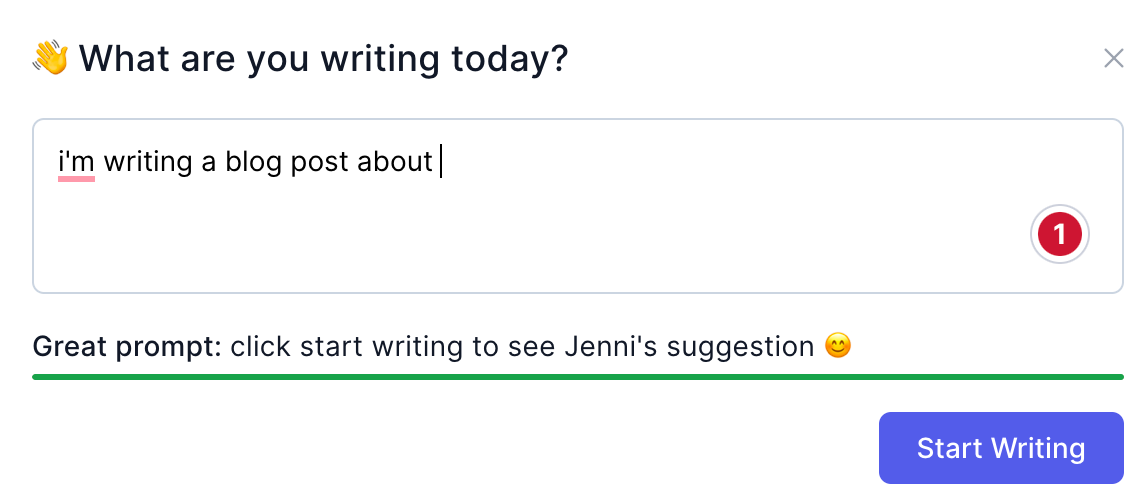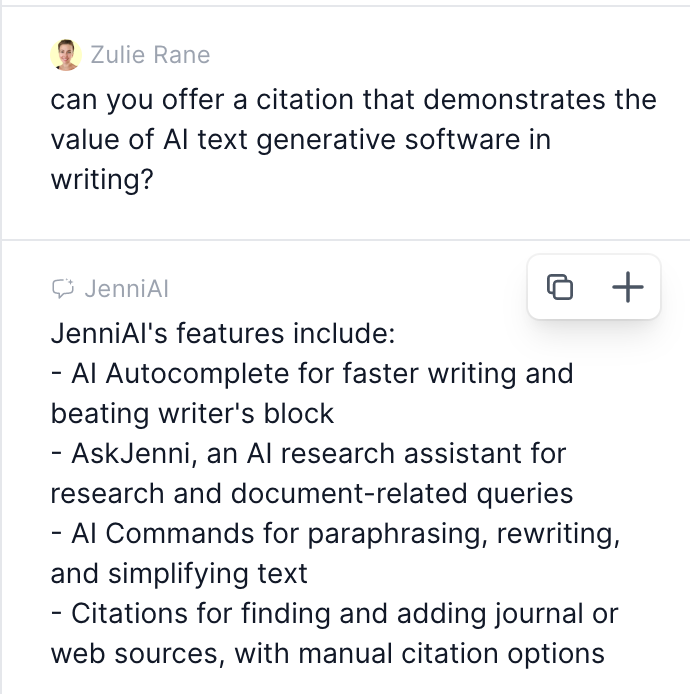Jenni.ai Review: Is it worth it for writers?
Yes, it’s another AI tool review! This time I’m wading into Jenni AI, an AI writing tool that promises to supercharge your content creation with high-quality content.
We’ve all heard that one before, haven’t we?
And while many Jenni AI reviews seemed very positive, many were also undisclosed affiliate links. There’s nothing wrong with affiliate links as a whole, but when the only good content you can see comes from affiliate links, where someone’s getting a kickback every time they send someone to Jenni.ai… well, I get suspicious.
Here’s a hyperlink — you can see it’s affiliate due to the ?utm_source=artturi bit at the end.
Screenshot of Jenni AI’s influencer program.
When I spoke with the founder, he told me that this one particular blog post was a bad example — this guy reached out to them offering to link to them, and asking for an affiliate partnership. Obviously the company can’t control whether their affiliates disclose those links, but it still feels bad to me when the most popular blog post promoting Jenni AI isn’t a disclosed affiliate link.
Then he told me that most of their promotion is on TikTok, where it is fully disclosed. OK, cool, I thought, makes sense, looks like I just got unlucky finding that one undisclosed affiliate partnership. However, when I was writing up the edited version of this article post conversation with him, I did search TikTok for “jenni AI.” I found several more instances of what I assume are undisclosed partnerships, because they blatantly promote Jenni AI with no nuance or discussion.
I waded in myself. Here’s a short version of my experience. Jenni AI is a below-standard AI text generation tool. It may be worth it for some specialist academic edge cases, but for everyone else, I’d recommend ChatGPT instead.
What is Jenni AI?
I found it a little funny, actually, that Jenni AI doesn’t seem to know what it is itself. Their mission statement is vague: “Our mission is to usher in a new era of human creativity through artificial intelligence.” What does that mean?
On the Google search results page, you see that it calls itself simply an AI writing assistant.
Google’s description of Jenni AI
But then on the homepage, it’s calling on academics to write their next research paper with Jenni. Their blog is also full of content primarily geared toward academics, including topics like MLA citation style and the best citation tools.
Screenshot of the home page. Suddenly we’re an academic tool, are we?
Then their LinkedIn is more about SEO-optimized content.
I spoke to one of the founders after he found my original post and wanted to chat, and was able to clarify a few things. It turns out that Jenni AI originally was a B2B service for SEO, then a more general AI gen tool, until finally evolving into its more academic iteration today.
Screenshot of Jenni AI’s LinkedIn description.
As I used it, I found Jenni AI to be mostly an expensive knockoff of ChatGPT.
And as a side note, I always find it a little suspicious when a team full of men names their assistive tool with a woman’s name. Lol. Again, after speaking with the founder, there was a good reason for it — his sister is named Jeanie, but Jeanie AI was apparently already taken. Furthermore, since this AI is text gen, the Gen/Jen play on sounds was there. However, especially where there are already so many assistive tools with feminine names, I think this could have still merited more thought and consideration.
How come y’all didn’t call it Steve AI? Or Brad AI? Curious.
Finally, I also found it VERY strange that their testimonial images came from images that were available on Unsplash, which is a royalty-free image site.
Screenshot of Jenni AI testimonials from their pricing page.
Here’s “Rachel Liu,” a made-up woman who apparently did not actually nickname it magic as per her testimonial, because she doesn’t exist.
Oh look, it’s Rachel.
And look, here’s Emile Rowe, who is the poster boy for the Wikipedia article on safe listening.
Emile is not only a Business MBA, he also models for Wikipedia in his spare time.
The founder assured me that these are real reviews, just anonymized since so many academics are using Jenni AI to write their papers and aren’t ready to be open about it. He also pointed me in the direction of the positive reviews on Twitter.
Honestly, as I said to him, for a company that has 1.6 million happy users, it seems wild to me that nobody was happy to go on the record with a genuine testimonial with a real name and face. Failing that, it was unexpected that they didn’t indicate that these reviews were anonymized.
My experience with Jenni AI:
Aside from all these issues, I found Jenni AI was not good at following the brief. It also made up citations.
Here’s what happened. I tasked Jenni AI with writing an article I’d been thinking about for a while: “TikTok is Full of Insecurity Mining Disguised as Self Care.” It’s an article about how so much of the content that does well on TikTok is blatant consumerism with a thin veneer of self-care pasted atop it. “Feeling sad? Buy this special water bottle.”
Jenni completely misunderstood the prompt, instead generating something about concerns about the security and privacy of TikTok. When I tried to correct it by adding more context to the content settings area, it persevered in its delusion.
This is not what I wanted. Screenshot from Jenni AI.
I decided to try giving it some meat and asking it to do the potatoes. Here, it operated like a slightly better Google autocomplete service. It was able to finish my sentence to a degree I felt comfortable with, so hypothetically if I had writer’s block, it might be able to help.
OK, better… Screenshot from Jenni AI’s tool.
But it kept trying to veer back into the privacy storyline it had hallucinated.
No, come on, you were close and then you failed. Screenshot from Jenni AI.
I did test out the same prompt with ChatGPT and found ChatGPT obviously trained on the same corpus of text as it spat out basically the same version of the text:
ChatGPT tried this out on me.
I also noticed that when I tested the brief tool again, it informed me that the brief “I’m writing a blog post about” was a great brief and more than enough for Jenni AI to start writing. I’m guessing it’s on a character count rather than any actual intelligence.
Oh, this is a great brief, is it? Thanks. Can’t wait to see what you come up with.
Curious, I allowed Jenni to continue with that prompt. It started talking about the weather. So.
Thank you for this engaging article.
What can you write with Jenni AI?
You can (allegedly) write an essay, an email, a blog, or something called “free flow.” You can (allegedly) choose between persuasive, bold, friendly, professional, or academic tones. This gives the illusion of a lot of options, but I found a lot of overlap.
Choose content type and content tone in the settings.
As you can see below, the “free flow/bold” combo gave me the exact same text as the “professional/blog” option. Not a whole lot of unique content altogether.
Here are a few samples of text in each style. I have highlighted repetitions and italicized when the AI hiccuped and gave me an “Sorry, I’m an AI so I can’t say if cats really are the best!” answer.
Prompt: why are cats the best?
My own table. Text generated from JenniAI.
I didn’t see that Jenni AI was good at any other kind of writing skills, such as product descriptions or social media posts. It was also not great at coming up with content ideas.
Can Jenni AI help write academic papers?
I believe that Jenni AI cannot reliably help write academic papers.
I spoke to three professional academics, one in organic chemistry, one in epidemiology, and one in evolutionary theory, and requested that they try out Jenni AI on their own work to see if it made improvements or smoothed out any of their workflows.
Anthony, the evolutionary theorist, asked Jenni to help him write the grant he was currently working on. Jenni relied on vague pop-science terms instead of the specific, nitty-gritty terminology he needed. When Anthony asked for a broader article on whether viruses are capable of cheating, which is a theory of viral evolution, Jenni lost its head completely and started writing what it thought would be a viral article about cheating in relationships and on tests.
Vera, the epidemiologist, asked it to help her work on a paper about the Eastern equine encephalitis virus (EEEV). Jenni AI resorted to vague, generic language without detailing any research methods or useful facts.
Tim, the organic chemist, decided to be merciful and asked it to write a general review of Buchwald coupling bases, which is a pretty standard, well-researched topic in chemistry. It generated what I thought was actually good, useful content.
Tim quickly set me right:
Screenshot taken from author’s Whatsapp page.
“It's reviewing ligands instead of bases,” he said. “It’s not wrong, but it’s reviewing the wrong thing.”
Jenni AI features:
To learn more about Jenni AI’s features, I checked out the Get Started Guide. This turned out to be a short help doc that lives inside the Jenni AI editor.
Screenshot of where you can find the Get Started Guide.
Then, I tried out the AskJenni functionality, which is an “AI research assistant that lives within your editor.”
Annoyingly, she congratulated me on writing such a thorough and complete user guide. Which I didn’t write; it was just there.
“Great job!” for nothing.
Anyway, here's a summary of the main features of Jenni AI:
AI Autocomplete, which suggests the next line of text and can be turned on and off in settings.
AskJenni (AI research assistant), which can answer research questions and help with document-related queries.
AI Commands (paraphrasing, rewriting, simplifying text), which can modify existing text or generate new blocks of text.
Citations, which can search for journal or web sources to add credibility and allow manual citations.
Content Settings, which fine-tune suggestions and set referencing format.
Plagiarism Check, which runs the document through a plagiarism checker and highlights any potentially plagiarized text.
AskJenni was a big letdown as she was unable to answer research questions or help with document-related queries as promised. I asked her to help me find a citation that would prove the effectiveness of text generative software and she helpfully replied with a summary of Jenni AI’s features.
This is not a citation, my robot.
As mentioned, the AI autocomplete seems to be a glorified Google autocomplete feature. The AI commands were occasionally helpful, but didn’t do anything special. The most useful tool for me was the “shorten” tool which cuts through a lot of AI text gen’s usually fluffy language.
The plagiarism check was interesting – what’s the benefit? You’d hope JenniAI doesn’t plagiarize anything by accident, so why do you need a built-in plagiarism checker?
How to use Jenni AI?
It’s very simple to get started.
Right on the homepage, you can click “Start writing for free.” Create your account with a Gmail login, then tell Jenni if you’re a student, a content writer, or just exploring.
Then you’re prompted to tell Jenni what you’re working on. The longer, the better. Jenni then starts work drafting an article for you.
It writes it line by line, allowing you to accept each line or see alternatives. If you select “see alternatives,” you can then see another version of what it would have written.
You can also choose another AI command: Jenni allows you to write with more depth, write an opposing argument, a conclusion, or an introduction.
The four commandments of AI.
You can also ask Jenni to cite its sources. However, it failed on the first try. It cited an article titled "TikTok's Insecurity: The Algorithm That Watches You” which straight up does not exist. The “cite sources” function appears to be a brief search on Google Scholar, which takes longer than doing it yourself.
Jenni AI pricing:
Jenni AI has a very simple pricing model. Everyone gets 200 free generated words per day. They refresh every day, but don’t stack.
Now if you don’t like the words it generates, you can get a free re-do. Those words don’t count toward your total.
Then, if you want unlimited words, you can pay either $20 a month or $144 for annual use.
Jenni AI alternatives:
Go with ChatGPT, seriously. It’s free and in my use case, it’s just as good as Jenni AI. Jasper AI is a potential second alternative if you’re dying to pay money for an AI tool.
Jenni AI pros and cons
OK, let’s take a minute and talk about the good, the bad, and the ugly about Jenni AI.
Pros of Jenni AI
The main pros of Jenni AI are that it’s easy to sign up and get started. I also like that there’s an embedded Google Scholar searcher, though I think it’s a bit rich to call it a citation tool.
Cons of Jenni AI
I encountered many negatives in my experience with the tool.
It’s just an expensive ChatGPT clone
Either it used the exact same training data, or it’s a company that’s making use of ChatGPT’s extremely cheap API. I suspect the latter, though they do have a few engineers on staff from what I could see. But ChatGPT sells access to anyone who wants to buy it, and it’s remarkably cheap. It would make way more sense to do that instead of building your own expensive model.
Indeed, when I spoke to the founder, he told me that they do indeed use ChatGPT, but they do a lot of pre and post-processing on the text with the engineers on staff. Their model also has the capacity to consult sources before a generation.
Maybe power users will get the benefit of that distinction, but personally, every time I tasked ChatGPT with doing the same thing as Jenni AI, ChatGPT came up with very similar content.
Jenni AI asks for $20 a month. You may as well go with ChatGPT’s free option.
It has too many features, and many don’t work
Now, hang on. Jenni AI has all those features that ChatGPT doesn’t! Surely that makes it worth $20 a month.
But…All those features, and for what? The Jenni Assistant didn’t do what I needed it to. The Citation Tool is basically just another window to Google Scholar. The various tones and styles generated redundant, repetitive text – or said something like, “Sorry, I’m just an AI, I can’t form an opinion!”
It falls prey to all other AI text-gen failures
On my very first try with it, it hallucinated that study, remember? This is bad for any AI text generator, but it’s egregiously bad for a tool that claims to be an academic research tool.
AI text generation has a lot of issues, and Jenni AI is free of none of them. It produces bloated, unspecific, wordy text. It can’t make unsupervised long-form content. It makes studies up. It generates incorrect text. And they still want $20 a month.
Final thoughts on Jenni AI
This is not a good AI tool. This is so far from the best AI writing software. ChatGPT is the best in my opinion.
The company also had a ton of red flags:
The undisclosed affiliate partnerships. The founder told me that this one particular
The lack of authoritative testimonials.
The mixed marketing messaging. SEO, content, or academic writing?
The fact that, if you go to their Terms of Service, it all references Altum Inc, not their own website. As far as I can tell, it’s not owned by Altum? (Again, after speaking with the founder, he told me it just used to be called Altum.)
Much of their blog content appears to be written by AI as well, and not particularly well. When I asked ChatGPT to complete the sentence of various samples from their blog posts, it wrote almost exactly the same content, word for word.
I like ChatGPT and use it pretty frequently as an SEO tool, as well as to help give me thoughts on content sections, or to explain things I only vaguely grasp. In my opinion, it does everything Jenni AI claims to do other than the citation tool, which you can easily do yourself with a simple Google Scholar search.
I’d recommend writers, academics, small business owners, or whoever else Jenni AI is pitching to this week to look for cheaper writing tools. You may still get shoddy results, but at least you’ll save your money that way.






















